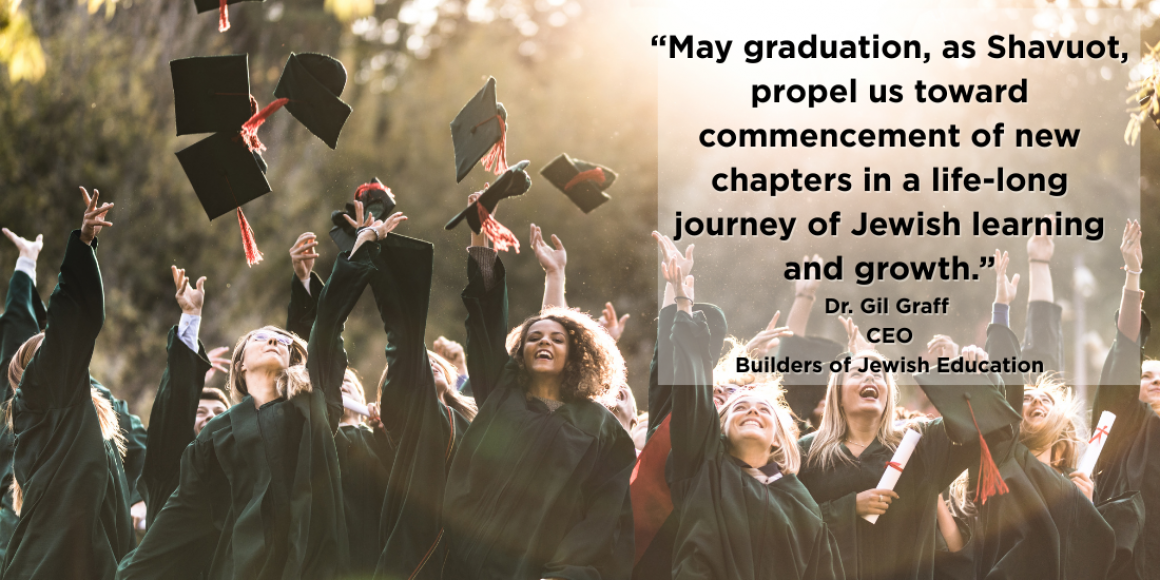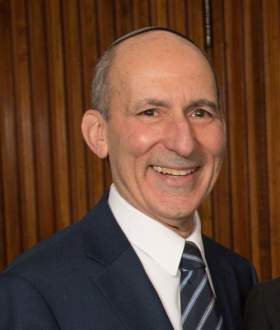
Commencement: Celebrating Graduation and Shavuot
Shavuot often coincides with graduation season, and graduations invariably include a charge to the graduates. In the case of the holiday of Shavuot there is also a charge, a charge that is nothing less than a mission statement for the Jewish people. The mission, described in Exodus 19:6 – as the people Israel encamped near the base of Mt. Sinai -- is becoming “a kingdom of priests and a consecrated nation.”
The Torah is the foundational sourcebook for giving expression to that charge, a guide to Jewish living. Rabbi Jonathan Sacks notes that in premodern societies, priests had a virtual monopoly on literacy. That all Israel is instructed to be “a kingdom of priests,” suggests Sacks, bespeaks, among other things, an educational imperative devolving on all members of Israelite society; it means a society of universal literacy.
Rabbinic tradition associates Shavuot with the experience of Mt. Sinai; hence the selection of this particular Torah passage, followed, immediately, by the ten commandments, as a reading for this holiday. The Torah, the entire corpus of Jewish texts, and the lessons of Jews’ lived experiences are all sources of wisdom for successive generations. To paraphrase Nahmanides, the events in the lives of our ancestors are instructive to their descendants.
The Book of Ruth, read in many Jewish communities during the holiday of Shavuot, reminds us that people’s Jewish journeys vary; each is unique. Ruth, the heroine of the scroll that bears her name, is a Moabite by birth and a Jew by choice, who is the ancestor of King David. Jews throughout the ages have been a diverse people. It is little wonder that a well-known volume exploring Jews and Judaism through the ages is titled: Cultures of the Jews; Jewish life has never been monolithic.
Despite diversity – and all too often, adversity -- Jews throughout the world have, over millennia, maintained a sense of connection (covenantal relationship) with one another and a commitment to the high ideals of Jewish teaching. In the words of the prophet Micah (6:8), we are called “to do justice and to love goodness and to walk modestly with your God.”
Jewish education is about connecting with the Jewish story and finding one’s place within it. It is about experiencing the charge to become part of a covenantal community and a journey toward becoming more deeply engaged with the accumulated wisdom of that community, to contribute to it, and to give expression to its values in action. The Torah is understood and interpreted differently by different people; to be Torah informed is, by no means, a matter of uniformity.
Graduation is commonly called commencement: graduates are both marking the milestone of completing a course of study and commencing their next chapter of development. Mazal tov to the students, teachers, parents, grandparents, siblings, school administrators, and all of us who celebrate graduations this season. May graduation, as Shavuot, propel us toward commencement of new chapters in a life-long journey of Jewish learning and growth.

